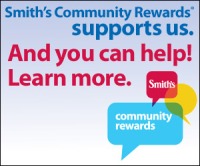Life can be unforgivingly ironic and cruel
Posted: March 28, 2023 Filed under: Childhood, Friends and Family, History, loss, Posts & Bases, Pride, The Host Nation Leave a comment
This is a photo of my dad, Gordon Ward, in 1957 at our home in Guantanamo Bay, Cuba U.S. Naval Base. With him are two Cuban boys, Raul and Luis age 12 (a year older than I at that time.)
My dad had been stationed as a US Marine there in GTMO in 1941, right after Parris Island and before WWII, for 2 years before being sent to fight in the Pacific (see my sister’s biography titled “Uncommon Survivor” for his history.) After being severely wounded on Iwo Jima on the first day of that ferocious battle, the woman he had met in Cuba 3 years earlier left the island, traveled to his hospital in New York and married him. Six years later he got a job as a civilian on that base influenced by my by-then mother’s parents who still lived in Cuba in the nearby town of Guantanamo (20 miles from the Naval base.)
Gordon (dad) was an adventurer and after a few years of skin diving and spear fishing took up flying, buying his own airplanes and flying them out of the Guantanamo airport all around the island (he was not allowed to keep the planes on the base.) In that capacity, he began to do charity work, taking a base doctor with him to remote areas and providing some basic medical care for the most needy. On a related trip he learned about Luis and Raul, who were in an orphanage and in very serious need of dental work.
So, in 1957 as the Castro Revolution was in heavy activity he had the two boys come to stay in our house on the base. I met them but left for the Summer to go to my grandparents’ house in New York, so I did not get to know them beyond meeting. So for two weeks he had their teeth repaired on base (I believe, though it’s also possible he took them outside the base.) He provided humanitarian aid to them, as was the case.
The Castro Revolution escalated and 18 months after this photo, a new government took over the island. The Castros eventually revealed themselves to be traitors to their promises, brutal to their opposition. Dad lost touch with Raul and Luis and we left Cuba that year near mid-1959.
Several years later dad attended a conference in San Francisco and encountered a Cuban he had known, who had also known Raul and Luis. So dad asked him about their welfare. With great sadness, the man told dad that the Castros had had the boys executed as spies, having learned that they had spent time on the base.
Life can be unforgivingly ironic and cruel.
What is unrecognized by most people is how much money GTMO contributed to Cuba until 1959. I have many articles (from the base paper) that showed charity drives, donations, etc. by base personnel to Oriente Province (the most eastern and poorest part of Cuba that surrounded the land portion of the base.) In addition, the sailors and others would take mini trips and spend much money around there, millions of dollars! On the salacious side, there were 3,000 prostitutes in the closest village to the base, Caimanera, were the men from the base and fleet (very few women on base, after all, beyond the dependent school girls and wives of accompanied men.) That town was basically leveled later by Castro and mine fields placed at the fence line.
Frederick Ward
Kwajalein Snowman
Posted: January 8, 2022 Filed under: Appreciation, Childhood, Posts & Bases, The Host Nation Leave a commentby Susan Bailey
Parents of Brats are innovative. When we were in the tropics (NAS Kwajalein), our 1950s dads got together to build us kids a snowman.
We are looking for school stories for a new anthology
Posted: May 1, 2021 Filed under: Childhood, Holidays, Military Family Museum, Posts & Bases, Service, Spouse, The Host Nation, Travel Leave a comment
Schooling With Uncle Sam will focus on personal memories–what it was like to work or study in the school system, to live and work in a foreign country or military installation – the mundane, funny, or tragic events and interactions that made for a memorable experience. Stories should be about a certain time, event, or experience about school/work/life with DoDEA (or with its predecessor organizations such as DoDDS, USDESEA, DEG, etc.) Authors included in the anthology will receive a free copy of the book in lieu of payment. All stories become the property of the Museum of the American Military Family Special Collections Library. Proceeds from the sale of the book will be used to help the Museum continue to bring exhibits and programming to the museum community free of charge.This is a chance to preserve a unique history and to be a part of it. It’s an opportunity to share a personal look at a world-wide school system serving America’s world-wide interests and assuring that your involvement with it will be recognized. You can submit up to three different pieces for the book.



